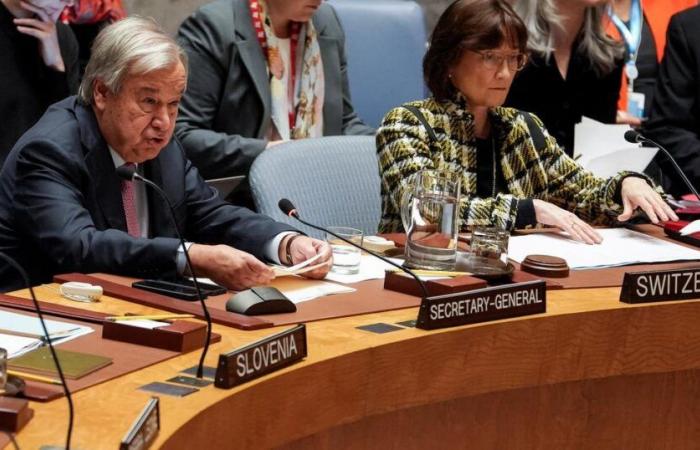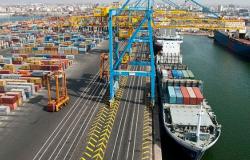Switzerland is coming to the end of its two-year mandate as a non-permanent member of the UN Security Council in New York. It will have experienced successes, but will also have been confronted with the reality of the limits imposed by the great powers.
The Federal Council reserves an official and detailed report for the beginning of next year to Parliament. In the meantime, Swiss Ambassador to the UN in New York Pascale Baeriswyl looks back on the second Swiss presidency of the most powerful body in the UN system, last October.
This will have been very intense, with Israeli attacks in Iran and Lebanon added to the conflicts in Ukraine, the Gaza Strip and Sudan. Switzerland has been congratulated by several countries.
“We tried to manage all of this and we succeeded, and I am proud of it, in uniting the Council on several occasions,” says Pascale Baeriswyl. “For example, on a statement of support for UNIFIL, the United Nations Peacekeeping Force in Lebanon, after several positions of the blue helmets came under fire.”
The ambassador also believes that Berne has worked towards peaceful work. “The elected and permanent members appreciated the calm that Switzerland brought to the debates,” she said.
Little attack on neutrality
In two years, Switzerland will have participated in around 810 meetings. She will have carried or co-led seven concrete results, including four resolutions. Among these are two texts on humanitarian aid, one of the themes on which it was expected, including one for the protection of humanitarian and UN personnel. It also contributed to the renewal of political missions.
Few attacks on neutrality will have been suffered, apart from those of Russia at the time of the Bürgenstock summit (NW). Moscow was also the only one to decline an invitation to Council members to come to Geneva.
Berne will have attracted criticism especially for its position in the Middle East. His decision to abstain on the recognition of a Palestinian state in particular was targeted by several NGOs.
Important roles in certain regions
A recent meeting of experts concluded that Switzerland had achieved success with certain limitations. A consensus emerged to believe that Switzerland's peace policy has been strengthened.
Researchers Lucile Maertens, from the Graduate Institute in Geneva, and Sara Hellmüller, from the Swiss Federal Institute of Technology in Zurich (ETHZ), believe that extreme political tensions around Ukraine prevent non-permanent members “from fully exploiting their mandate”. While they are confronted with the “limits of power politics” between large states,
But the mandate also shows that they “can play important roles” on themes or certain regions, add the two academics, who are leading a three-year research on this Swiss participation.
Expected impact in Geneva
“We will have to see in the short term whether Switzerland can capitalize on its higher international profile,” say Lucile Maertens and Sara Hellmüller. As well as on relations with the five great powers in the Council.
In the medium term, the mandate could have an impact on international Geneva, systematically put forward for two years by Switzerland.
ats/ther






